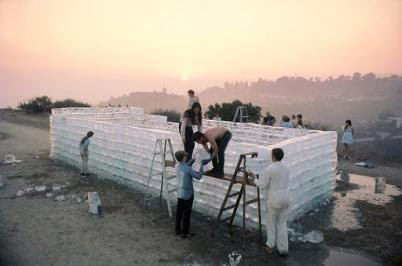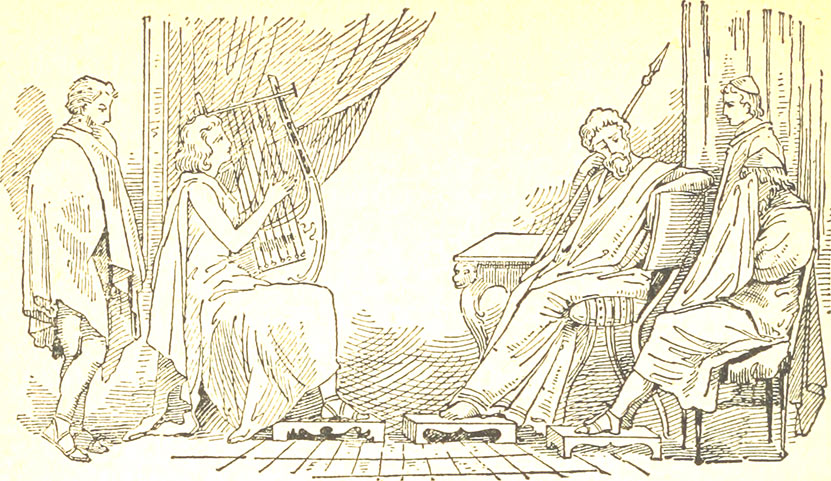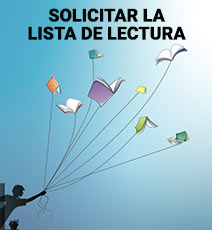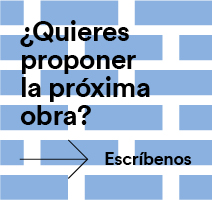Read
Speech Poetry:
poetry with the authenticity of a conversation
Javier Yániz, student of 3rd year of Philology Hispánica, explains this latest poetic trend in the United States.
in the United States. Is reciting poetry today contemporary art?
Clandestine protest against the regime?
Or what our grandparents' grandparents sang at fairs?

by Javier Yániz
Words have a creative force that can have a direct impact on the physical world. Thus, a "Shut up!" or a "Will you marry me?" can alter reality, our lives. We must not forget the beginning of Genesis or of the Gospel of Saint John in which the word - the synthesis of God - is the creator of the world: "In principio estaba la palabra" or "Let there be light! " "In principio verbum erat" and "Fiat lux" or "יְהִִי אוֹר" in Hebrew.
Of the literary elaborations capable of affecting reality, perhaps poetry deserves special attention. The creative word in poetry radiates life; it is present from those compositions designed to be read with eyes half-open and tucked up in bed, to those configured to be declaimed. For example, I don't know of any reader who, on falling into the verses of Whitman I don't know of any reader who, on falling into the verses of the American bard, has not wanted to go out into the street to sing them and refund the words of the American bard to the world:
|
Good-bye my Fancy! |
-Farewell my Fantasia! |
(Leaves of Grass, trans. Francisco Alexander, Visor 2014)
The first decade of our century has seen the consolidation in Anglo-Saxon countries of a poetic internship close to performance known as speech poetry or spoken word. These performances owe much in their format and repercussions to the recitals staged in the 1950s and 1960s by the gurus of the beat generation, to whom they are referents. One could consider as examples of spoken word the Wichita Vortex Sutra by Allen Ginsberg with music by Philip Glass or the performance of Laurie Anderson Home of the brave, in which their original creations coexist with poems by William S. Burroughs. As can be inferred from the examples cited above, speech poetry - from the 1950s and 1960s, including today's - tends to be combative and politically committed to social causes.
Another background phenomenon that must be taken into account in order to understand American spoken word and its popularity is rap music, which enjoyed particular prestige in the 1990s. In these songs - often improvised - on a rhythmic basis, like the poetry of the beat generation, there is a strong political component and social criticism.
Nowadays these poetic performances are also linked to committed tendencies and aesthetics, especially to environmentalism, feminism and queertheory.
Wichita Vortex Sutra by Allen Ginsberg with music by Philip Glass
Laurie Anderson Home of the brave
Queer poetry(#progress by Andrew Wagner)
We would like to point out that although the focus of irradiation is in the United States, especially in New York, we also find interesting examples in the Hispanic world. We leave as an example Me gritaron negra by Victoria Santa Cruz:
In this internship - as can be seen in the videos - it is characterised by the fact that the recitation of the verses - normally memorised - transcends mere recitation, becoming declamation, even performance. For this reason, it is not uncommon to find in these recitals musical accompaniment, the intervention of other arts, especially scenographic resources such as costumes or a small lighting effect, and the performance of the verses, that is, accompanying the words with gestures or small choreographies.
 One of the constituent features of the speech poetry -in theory- is its ephemeral nature (evanescent). Like a performance or a happening based on the irreproducibility, the impossibility of creating a copy. In these shows authenticity and uniqueness are particularly important. Therefore, as it is not subject to an immovable text the reciter has the ability to adjust the poem to the reactions of the audience. This makes the presence of the audience indispensable, interacting actively (intervening) or passively (listening).
One of the constituent features of the speech poetry -in theory- is its ephemeral nature (evanescent). Like a performance or a happening based on the irreproducibility, the impossibility of creating a copy. In these shows authenticity and uniqueness are particularly important. Therefore, as it is not subject to an immovable text the reciter has the ability to adjust the poem to the reactions of the audience. This makes the presence of the audience indispensable, interacting actively (intervening) or passively (listening).
As mentioned above, its functioning is very similar to that of a happening. For example, Allan Kaprow in Fluids (reinvented in several places, among others the Museum of the University of Navarra) proposes to build a square with solid blocks of ice. The purpose of the construction is not the construction itself, since the product generated is destined to thaw, lose its physical form and return to being a formless fluid; but the social relations that are generated throughout the construction. In this way the non-attendee can only see the result, visit the experience mediated by the technique (video or photo). However, by not participating in the execution of the happening, he or she will never be able to experience the sensations that were generated in this reinvention.
Video of the happening that took place in the MUN: Fuids Navarra
Although these poetic practices contrast with the contemporary idea of poetry as a moment of intimate calm between the physical poem and the reader, these performative poetic practices are no different from the poetry of, for example, Requiem, a composition critical of the Stalinist regime that was transmitted in clandestine recitations without ever being transmitted to the public. Anna Akhmatova Requiem, for example, a composition critical of the Stalinist regime that was transmitted in clandestine recitations without being fixed on paper until many years after its transmission; nor do they differ from the ancient romances that in the mid-20th century were still recited and sung in the villages and that the philologist or the ethnologist and musician still sang in the villages. Menéndez Pidal or the ethnologist and musician Joaquín Díazor, as a last example, with the epic in which the rhapsode or the minstrel sang the epic deeds of a hero.
Joaquín Díaz singing the romance of El Conde Olinos
Because of these small notes, speech poetry or spoken word cannot be considered a new genre, but a revitalisation of oral poetry.

Odysseus weeps at the song of Demodocus
"The literature of all nations and all ages; history, character, and incident" (1900).
Walt WhitmanLeaves of Grass, trans. Francisco Alexander. BUY.
Anna Akhmatova, Requiem. BUY.
Allan Kaprowbiography and recording of the author himself talking about How to Make a Happening. LISTEN.







